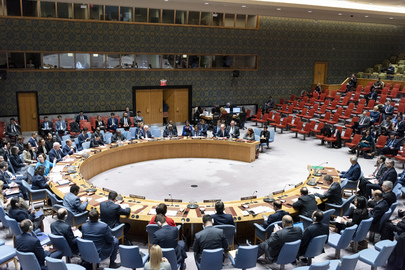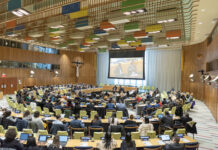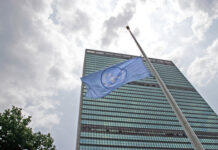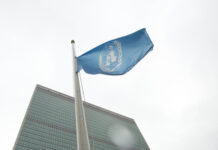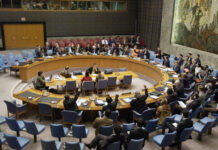This is the News in Brief from the United Nations.
Dangerous food insecurity worsens for fifth year in a row
Dangerous levels of acute hunger affected a staggering 281.6 million people last year – the fifth year in a row that food insecurity has worsened – heightening growing fears of famine and “widespread death” from Gaza to Sudan and beyond, UN agencies warned on Wednesday.
According to the latest Global Report on Food Crises, more than one in five people in 59 countries faced acute food insecurity in 2023, compared with around one in 10 in fewer countries in 2016.
Children and women are at the forefront of these hunger crises that are often linked to conflict and disasters, the report’s authors said, with at least 36 million children under five years of age acutely malnourished across 32 countries.
Acute food insecurity is understood to mean hunger so severe that it poses an immediate threat to people’s livelihoods and lives. It is “hunger that threatens to slide into famine and cause widespread death”, said Dominique Burgeon, Director of the UN Food and Agriculture Organization (FAO) Liaison Office in Geneva.
Mr. Burgeon warned that conflict which erupted in Sudan last April has created a hunger crisis affecting more than 20 million people.
Now, ongoing fighting between rival militaries has threatened food production in the country’s main wheat-producing state of Al-Jazeera, the FAO official said:
“It is absolutely critical that wherever it will be possible to access the people (that) we provide them with agricultural inputs on time so that they can plant their fields. If those people fail to plant their fields, it means we have to be prepared for massive food assistance requirement until the next harvest next year.”
Gaza: People ‘are clearly dying’ from hunger, warns UN food agency
To Gaza, where the UN World Food Programme (WFP) warned on Wednesday that some people have run out of food and are now dying of hunger.
The alert comes after nearly seven months of Israeli bombardment, sparked by Hamas-led terror attacks on southern Israel last October.
From WFP in Geneva, here’s Gian Carlo Cirri, Director of the agency’s Geneva office:
“People cannot meet even the most basic food needs, they have exhausted all coping strategies, like eating animal fodder, begging, selling off their belongings to buy food. They are most of the time destitute and clearly some of them are dying of hunger.”
The only way to halt a famine in Gaza is to ensure daily deliveries of food supplies “in a very short time” – and allow humanitarian staff to move freely so that people can access assistance safely, Mr. Cirri said.
Two hundred days into the war, the UN agency for Palestinian refugees, UNRWA, condemned continuing “bombardment and attacks” of its facilities in Gaza.
UNRWA said in a social media post that a school-turned-shelter in Nuseirat camp was targeted three times on the 11th and 13th of April, killing seven.
The UN agency also reported that it carried out a mission to north Gaza on Tuesday to provide life-saving medical and water-purification aid to people in Jabalia, with the UN Children’s Fund, UNICEF.
To support its work until the end of the year, UNRWA launched an appeal on Wednesday for $1.2 billion.
The emergency funding will help respond to the “most urgent needs” of 1.7 million Palestinians in the Gaza Strip and more than 200,000 Palestine refugees in the West Bank, including East Jerusalem.
Tanzania in rights spotlight over ritual attacks on people with albinism
Top disability rights experts urged the Tanzanian authorities on Wednesday to do more to condemn and investigate gruesome attacks on people with albinism.
The experts from the UN Committee on the Rights of Persons with Disabilities maintained that Tanzania’s failure to act “sends a message that ritual killings and mutilations are condoned”.
In one case before the committee, a single mother was assaulted by two men who cut off one of her arms and fled with it. Her other arm was later amputated. An investigation was opened but neither of the defendants was prosecuted and a third person was acquitted, the experts said.
In a statement, they urged Tanzania to provide victims of attacks with compensation, so that they can live independently again.
The experts – who are not UN staff – also urged Tanzania to adapt existing measures to stop attacks on people with albinism and also trafficking in their body parts.
Daniel Johnson , UN News.
Source of original article: United Nations (news.un.org). Photo credit: UN. The content of this article does not necessarily reflect the views or opinion of Global Diaspora News (www.globaldiasporanews.com).
To submit your press release: (https://www.globaldiasporanews.com/pr).
To advertise on Global Diaspora News: (www.globaldiasporanews.com/ads).
Sign up to Global Diaspora News newsletter (https://www.globaldiasporanews.com/newsletter/) to start receiving updates and opportunities directly in your email inbox for free.


